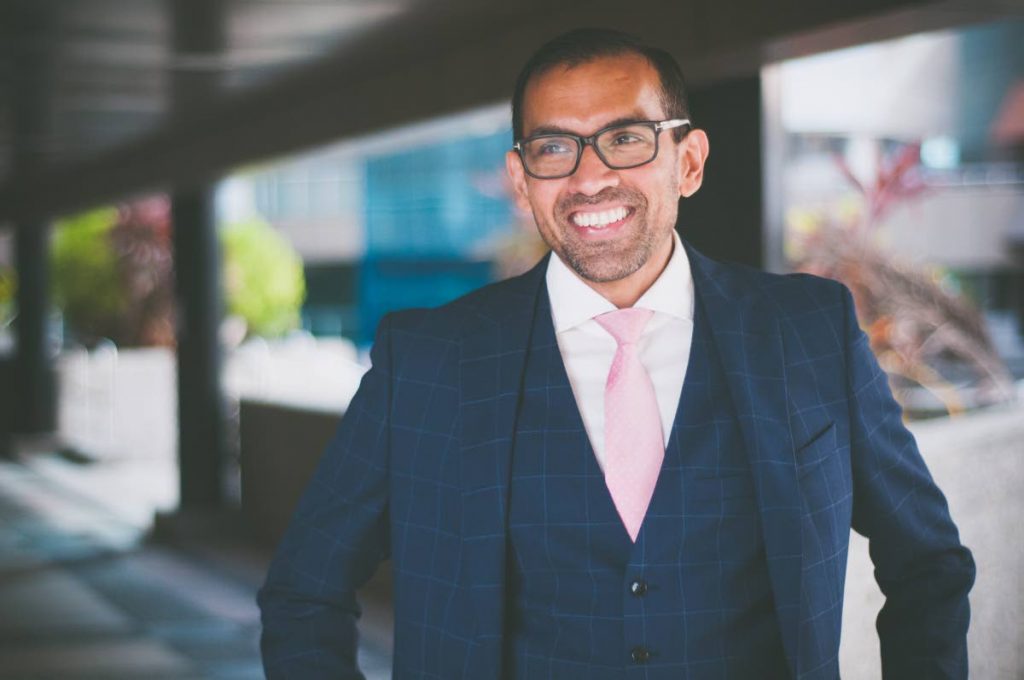Attacking journalists

Dr Emir Crowne
Journalists are under attack in this country. The Government and political hopefuls alike are the principal aggressors. Last week at a symposium on Fake News, the Minister of National Security Stuart Young chided the local press for their apparent role in spreading fake news. A similar rebuke was made by the Attorney General Faris Al-Rawi in November for “not covering the news the way he wanted”, as one journalist put it. Physical attacks have also taken place. In December a journalist was inexcusably slashed across the face while covering a football match.
In the spotlight, however, is Phillip Edward Alexander’s tirade against Hema Ramkissoon. Alexander, the leader of the Progressive Empowerment Party (PEP), took issue with Ramkissoon’s treatment of certain PEP members on her morning show. On several Facebook posts Alexander describes Ramkissoon as a “pig”, characterising her behaviour as “gross”, “unethical” and “pig like”.
This type of behaviour must never be condoned. Whether at the government level or the pseudo-political level, attempts to silence the media through overt bullying or implicit slights against journalists’ characters is dangerous. It leads to self-censorship and a denial of the truth. In fact, the truth becomes whatever the State or politicians say it is. One need only look at Venezuela for a damming example of this.
Legally, the starting point is the Constitution. Freedom of the press is a constitutionally-entrenched right. Many constitutions do not entrench a specific right that protects press freedom. We do. That right should not be trampled upon by politicians and the politically adjacent. It must be defended with vigour.
Quite frankly, until my representation of the Media Association of TT before Parliament’s Joint Select Committee on Cybercrime, I never gave much thought to the importance of journalism. I took it for granted that news existed. However, in a country where legislative change is incremental and the Government is more concerned about political blame than governance, an independent judiciary and an independent press are the only avenues left for accountability. Without them I fear that our society is heading the way of both anarchy and dictatorship. As the Canadian Supreme Court recently put it: “A strong, independent and responsible press ensures that the public’s opinions about its democratic choices are based on accurate and reliable information. This is not a democratic luxury – there can be no democracy without it…
"A vigorous, rigorous, and independent press holds people and institutions to account, uncovers the truth, and informs the public. It provides the public with the information it needs to engage in informed debate. In other words, it is the public’s “right to know” that explains and animates the distinct constitutional protection for freedom of the press…” (per Abella J in R v Vice Media Canada Inc, 2018 SCC 53 at paras 110 & 125)
More particularly, aside from the familiar action in defamation, journalists and others should note the possible protection afforded to them under the Equal Opportunities Act (the Act). Section 7 of the Act prohibits sexist, racist and other vile attacks. The section, aptly named “offensive behaviour”, provides that:
“(1) A person shall not otherwise than in private, do any act which—
(a) is reasonably likely, in all the circumstances, to offend, insult, humiliate or intimidate another person or a group of persons;
(b) is done because of the gender, race, ethnicity, origin or religion of the other person or of some or all of the persons in the group; and
(c) which is done with the intention of inciting gender, racial or religious hatred.”
On several occasions, including the most recent attack against Ramkissoon, Alexander has alluded to several female journalists obtaining housing or employment after "lying on their back" or in return for "favours". These insults invariably trigger the first two limbs of sub-section 7 (1). That his insults have the potential to incite gendered hatred of the journalists in question is also not in doubt. Especially when one considers that, as the leader of a political party, Alexander’s words are intended to incite his followers, for one reason or another.
Ironically, clause 18 of the proposed Cybercrime Bill (the Bill) would criminalise Alexander’s apparent cyberbullying. That Bill, however, contains absolutely no protection for media personnel who operate in the public interest. The Bill, if passed, would effectively criminalize investigative journalism. It too is an attack on journalists and their freedom.
In the end, we must protect the media. We might disagree with their stories or content, but insofar as the media is acting responsibly and in the public interest, they cannot – and should not – be bullied into submission by dyspeptic politicians.
* (In an earlier diatribe, Alexander referred to a journalist as a “house negro”. That matter is currently before the Equal Opportunities Commission, and the journalist in question is represented by the author.)


Comments
"Attacking journalists"